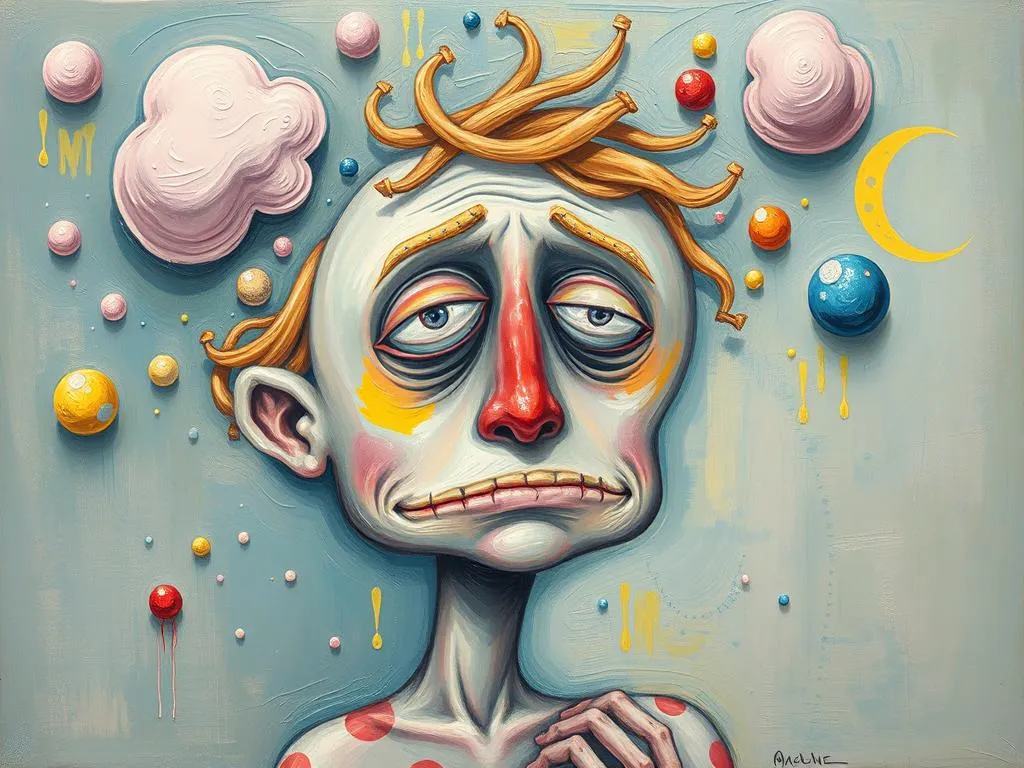
Introduction
Dreams have long fascinated humanity, serving as a window into our subconscious and a means of exploring our innermost thoughts and feelings. Among the myriad of themes that surface in dreams, the portrayal of mental illness is particularly intriguing. Such dreams can evoke a wide range of emotions—from fear and confusion to empathy and understanding. As mental health becomes an increasingly relevant topic in our society, the symbolism of mental illness in dreams invites deeper exploration and reflection. Understanding these dreams can provide us with essential insights into our waking lives, revealing underlying anxieties, unresolved conflicts, or even a call for greater self-awareness.
Symbolism and Meaning
When we dream of mental illness, the symbols present can vary significantly depending on the context of the dream and the dreamer’s personal circumstances. Mental illness in dreams often represents feelings of vulnerability, chaos, or a sense of losing control. This may not only relate to mental health issues but can also signify broader themes of disconnection or alienation from oneself or others.
For instance, if you dream of a loved one struggling with mental illness, this could represent your own concerns about their well-being or a reflection of your fears regarding your relationships. Alternatively, dreaming of being mentally ill might symbolize your own feelings of inadequacy or fear of judgment from others. In this context, the dream serves as a metaphor for the pressures you face, whether they arise from work, relationships, or societal expectations.
Additionally, the setting and characters in these dreams play a crucial role in their interpretation. A dream set in a hospital or a psychiatric facility might underscore feelings of helplessness or a desire for healing, while a chaotic environment could symbolize turmoil within your life. The presence of a therapist or a supportive figure can indicate a yearning for guidance and understanding, suggesting that you may need to confront your emotions and seek support in your waking life.
Key Scenarios and Variations
The meaning of dreams involving mental illness can shift dramatically based on specific scenarios. For example, dreaming that you are the one experiencing mental illness may indicate that you are facing internal struggles, such as insecurities or fears that you have not fully addressed. This scenario often highlights a need for self-care and a more profound understanding of your emotional state.
In contrast, a dream in which you witness someone else’s mental breakdown might reflect your feelings of helplessness or concern for that individual. It can also symbolize aspects of yourself that you have suppressed or ignored. This duality points to the complexities of human emotions and relationships, suggesting that our perceptions of others can often mirror our internal challenges.
Another common variation involves dreams where mental illness is portrayed in a more surreal or exaggerated manner. These dreams may involve bizarre behavior or distorted reality, indicating that you are grappling with feelings of disorientation or a sense of being overwhelmed in your waking life. Such scenarios can serve as a wake-up call, encouraging you to confront underlying stressors or emotional conflicts before they escalate.
Dreams that include treatment or rehabilitation can also carry profound meanings. These dreams might symbolize a desire for recovery—either for yourself or someone else. They can indicate that you are ready to face your challenges and seek out solutions, emphasizing the importance of self-compassion and healing.
Real-Life Connections and Takeaways
Connecting dreams about mental illness to real-life situations can often lead to valuable insights. First and foremost, it is essential to recognize that these dreams do not necessarily indicate a literal fear of mental illness. Instead, they often reflect deeper emotional states or unresolved issues. As you reflect on your dream, consider what aspects of your life might feel chaotic or overwhelming. Are there specific stressors or relationships that require your attention?
Engaging in self-reflection can be immensely helpful. Journaling about your dreams, exploring the emotions you felt during the dream, and considering how those feelings relate to your waking life can foster a deeper understanding of your psyche. This practice allows you to confront fears or anxieties that you might have been avoiding, offering a pathway to healing and personal growth.
Additionally, consider how you can cultivate a supportive environment for both yourself and those around you. If your dream involved someone else struggling with mental illness, think about your relationship with that person. Are there ways you can offer support or encouragement? This reflection can strengthen your connections and promote emotional well-being for both parties.
Lastly, if your dream left you feeling particularly unsettled or anxious, it may be beneficial to seek professional help. Speaking with a therapist or counselor can provide clarity, allowing you to explore the underlying issues that the dream may have highlighted. Mental health professionals can offer tools and strategies for coping with stress, anxiety, and other emotional challenges.
In conclusion, dreams about mental illness can serve as powerful mirrors reflecting our emotional states and relationships. They invite us to explore our vulnerabilities, confront our fears, and seek healing. By engaging in self-reflection and fostering open dialogues about mental health, we can cultivate a deeper understanding of ourselves and enhance our connections with others. Remember, dreams are not just fleeting images; they are messages from our subconscious, urging us to pay attention to our emotional landscape.







